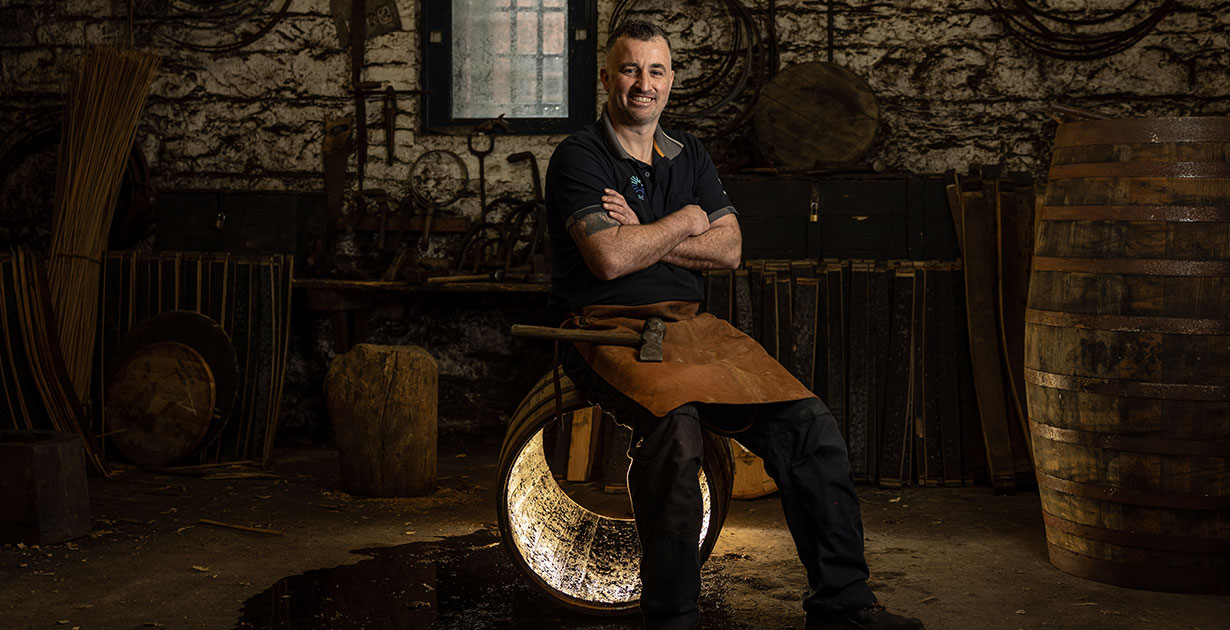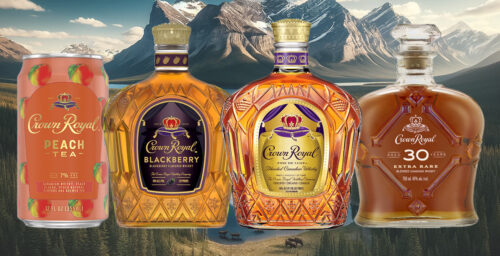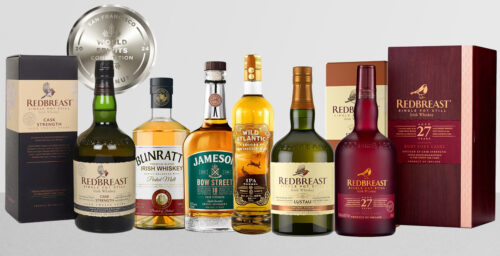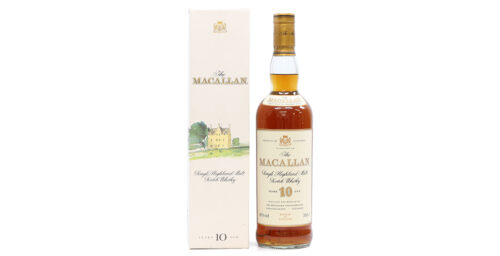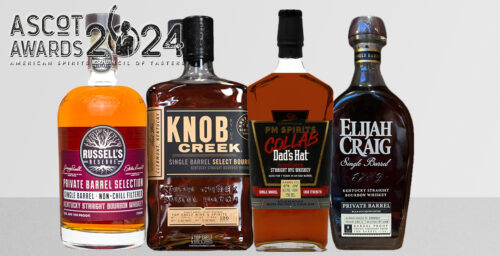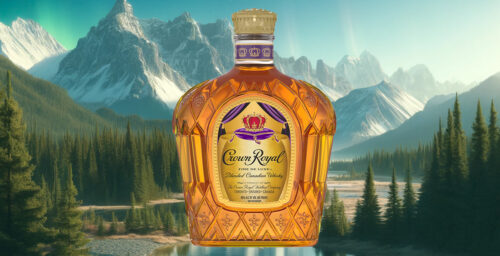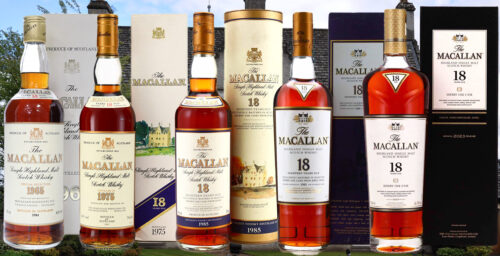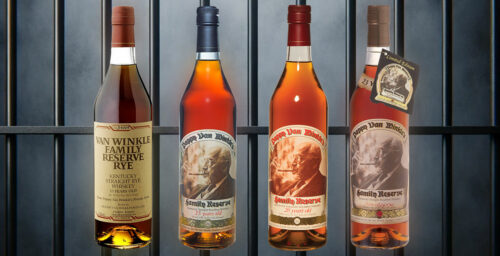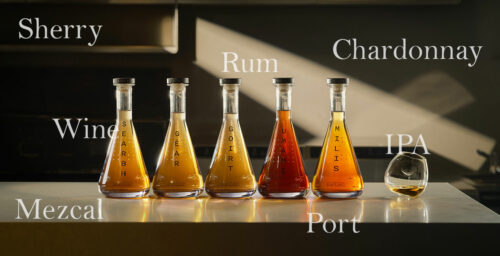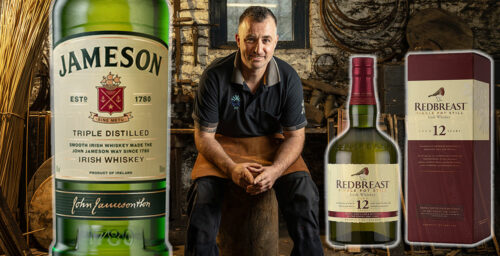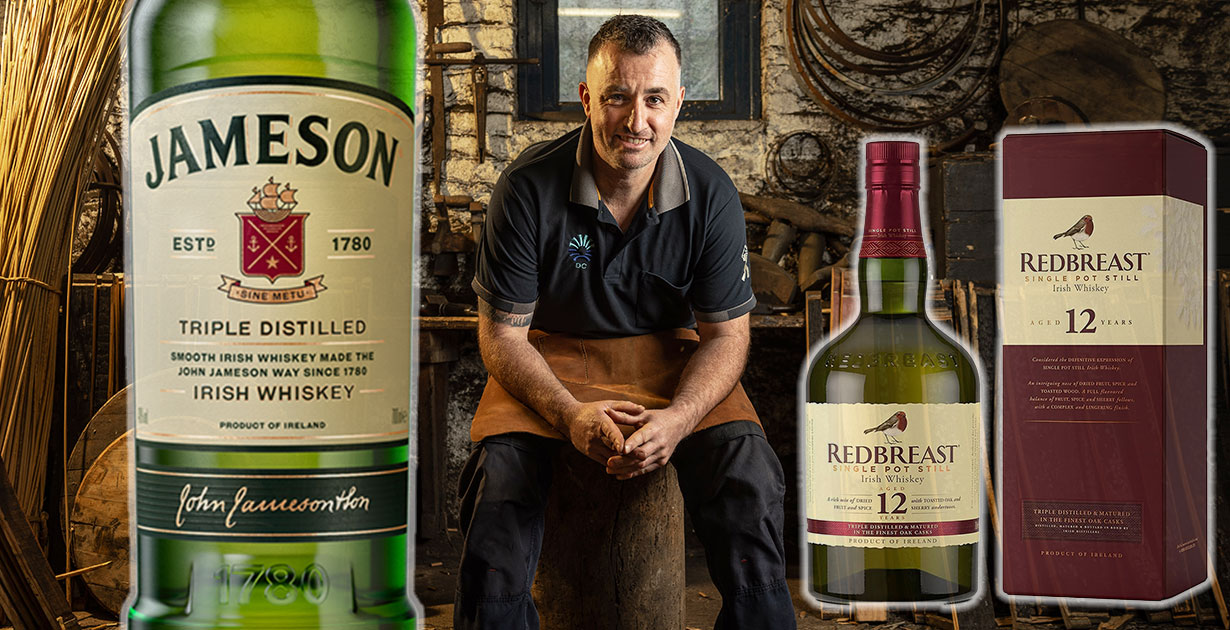
A cask imparts wonderful flavors to a whiskey while it matures. You will often see a statistic regarding the percentage of a whiskey’s flavor that comes from its cask. The number usually varies between 50-80%. Notes like honey, vanilla, caramel, and fruits all come down to the choice of cask. Yet many consumers have never given much thought to the expertise and skill required to create such a significant component of their favorite drink.
A cooper is responsible for producing the casks in which our beloved whiskey matures. According to the new cooper at Irish Distillers (Jameson, Redbreast, Midleton Very Rare), Derek Cronin, it is highly specialized, hands-on work that needs to be brought out of the shadows and into the public eye.
I sat down with Derek to discuss his recent appointment as Irish Distillers’ second cooper in 45 years, his journey into the industry, and why it is so important to preserve this ancient craft.
From Carpentry To Coopering
Derek, from Ardmore, County Waterford, is the second newly qualified cooper at Midleton Distillery in Ireland in 45 years. Prior to this, he trained as a carpenter. He spent seven years living in Australia to hone his skills before returning to Ireland to work for PJ Hegarty & Sons in Cork. Then, in 2019, fascinated by the world of coopering, Derek joined Irish Distillers as a General Operative. His four-year coopering apprenticeship under fifth-generation cooper, Ger Buckley, began in 2020.
In an earlier press release regarding Derek’s appointment, Ger Buckley said: “[Derek’s] background in carpentry enabled him to hit the ground running”. I asked Derek if he believed that his experience in carpentry set him up for his apprenticeship. His passion for his craft is immediately obvious as we sit down. He has a big smile on his face and is happy to launch straight into our coopering conversation.
“The fact that I came from carpentry was definitely a great help for me to adjust to the coopering life. I took to it easier because of my experience in carpentry. If you would like to get into coopering, having previous experience in a trade like carpentry can be really useful, as you will be used to working with wood.”
Derek’s Experiences Abroad
Of course, coopering is very different from carpentry, hence Derek’s four-year apprenticeship under the coopering legend, Ger Buckley. Far from spending all of his time at this cooperage in Ireland, however, Derek was given the chance to travel around Europe observing and learning about different coopering practices.
“I was lucky enough to be able to travel with the Scottish Cooperage Federation, which took me to Alloa for 12 weeks of training. Then I went to France, just outside Bordeaux for five weeks, and there I was able to work with a lot of different machinery. I also spent seven weeks in Spain.”
Whilst you would be forgiven for thinking that the coopering craft must be the same across the world, Derek says that his training abroad opened up his eyes to the possibilities involved in coopering, as well as how each cooper develops his or her own methods.
“Everywhere I went I was picking up something new. The opportunity to work with different people was really beneficial; to have fresh eyes and opinions on something I was working on was invaluable. I’m still in touch with a lot of people from my training in other countries. There is a great sense of community amongst coopers.”
Learning From Coopering Legend, Ger Buckley
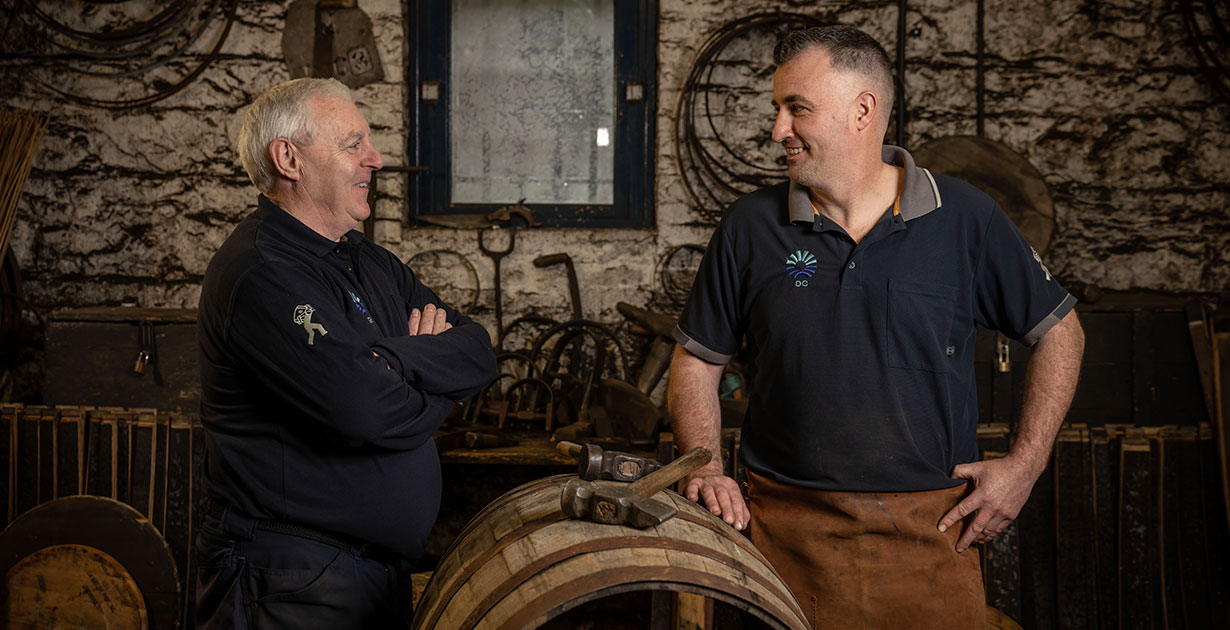
The highlight of Derek’s apprenticeship, though, was working under Irish Distillers’ Master Cooper, Ger Buckley. Buckley, a fifth-generation cooper, learned the craft from his father and is deeply passionate about the stewardship he has over the roughly 2 million casks at Midleton, a responsibility he now shares with Derek.
Derek has nothing but praise for his mentor, saying: “I started at Irish Distillers as a General Operative, so I didn’t have the opportunity to meet him for a while. I actually applied for the [coopering] job before I met Ger, but then I made it my business to go and meet him.
“He has been an amazing mentor. I was in awe of his knowledge, and his love for coopering. If I can take just a small percentage of that then I will be a happy cooper. Coopering will never leave him, and I like to think that I learned from the best.”
Completing his apprenticeship under a seasoned pro like Ger Buckley clearly had a lasting impact on Derek, who beams when we speak about his experiences.
Curious about what he learned under Buckley, I asked Derek if there was any aspect of coopering that surprised him when he first began his training.
“Yeah, something that did surprise me was when Ger Buckley said to me ‘measure with your eyes’. Coming from carpentry, you could have four or five different tools for measuring because everything must be completely accurate. But, with coopering, we only have one measuring device. This is just to measure the size of the cask head. Everything else is done by eye,” says Derek.
This surprises me, and I tell him as much. Derek laughs, “Yeah. You learn fast because if you don’t you could end up with a leaky cask and whiskey everywhere!”
He continues: “Every cooper has a mark. Once I repair a cask I put my mark on it, and if I go out to a warehouse, I sometimes come across a cask that I repaired. If you do your job right and the casks aren’t leaking, that mark is a sign that you have stood over the cask and done your best work.”
A Hands-On Approach
Learning from Ger, and having experience in carpentry, instilled in Derek a love for the traditional, hands-on approach employed at the Midleton Cooperage. There is no doubt that the coopering industry is becoming more mechanized. I ask Derek if he prefers a machine or hand-based approach.
“My favorite part of being in a cooperage is the hands-on aspect. You get to know the cask,” explains Derek. “The big thing with Irish Distillers is that they want to keep the old craft alive. They want everyone that comes in to see how it was done. We actually have a number of tools from the Bow Street Distillery in Dublin, which was the production home of Jameson’s back in the day. Some of these tools date from around 1908.”
Having gotten to know many a cask over the last four years, I asked Derek which is his favorite cask type to work with. “I love working with the sherry butts. They come up to about my chest height, and they are much more physically demanding to work with. I get a greater sense of satisfaction once I have worked on a large cask and watched it go back out to be filled with whiskey.”
The Influence of the Cask
As stated above, between 50 and 80% if a whiskey’s character is imparted by the cask. As Derek spends so much of his time carefully repairing these casks for maturation, I ask him about his go-to whiskey that shows off cask influence.
“My favorite is the Redbreast 12 Year Old, which comes from a 500-liter sherry cask. It is only a slightly toasted cask, not so much a heavy char. This allows a fruity spice to come through in the whiskey. I think if you dabble with different whiskeys from different casks you can see the difference in the profiles.
“For example, the Jameson Black Barrel is from a double charred cask and has a quite intense toasted oak flavor, in contrast to the Redbreast 12. This is proof that the cask has an amazing amount of influence on the whiskey.”
And, by extension, this is proof of how important coopering is as a trade. If 80% of a whiskey’s flavor comes from the cask, then we as drinkers can be confident that Irish Distillers’ whiskey is in very capable hands.
Derek’s Coopering Mission
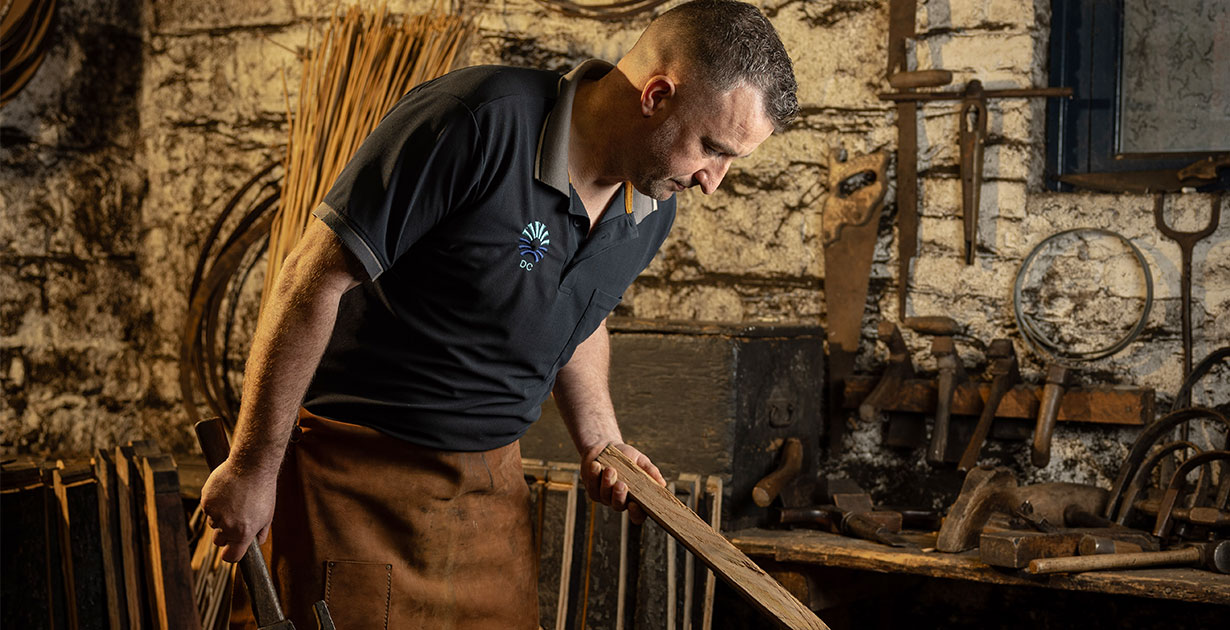
Given that coopering is such an important aspect of whiskey-making, and so personally important to Derek, I am curious as to what he would like to achieve through his new role at Irish Distillers. Unsurprisingly, Derek has no shortage of answers to this question, and is very enthusiastic about the future of coopering in Ireland.
“My mission would be to bring coopering to the public eye. I knew very little about it before I started at Irish Distillers, and I would like for more people to have an understanding of coopering. Personally, I’ve found that many people that I have met – who didn’t know anything about coopering before – were hooked after one conversation. There is a lot of interest out there.
“By the time I retire, I would love to have seen the number of cooperages in Ireland increase. It would also be great to see the establishment of an Irish Cooperage Federation so that we can encourage young people in Ireland to get into the craft.”
This is particularly important to Derek, especially in light of the fact that the craft has seen a significant decline in recent decades. It has been suggested that, in the modern day, young people are attracted increasingly to technologically advanced career paths rather than trade. Efforts are underway to remedy this, highlighting the importance of maintaining the legacy of coopering and ensuring a secure future for both the craft and the whisky industry as a whole.
Derek hopes that his own children may one day follow him into the business: “I have a three-year-old little boy, and I would love for him to follow me into coopering. He came up to the cooperage a couple of weeks ago and he loved it. He always wants to come to work with Daddy. We call him a ‘mini cooper’! I’d love it if he followed in my footsteps.”
So, it seems like Derek’s son might be beginning to hone his craft already! But, what about young people who want to get into coopering but don’t know how? Where should they start?
“There are so many books and magazines about coopering, and there are videos on YouTube as well. I also think that starting in carpentry or joining gives someone a good foundation. If you already have a trade, you can hit the ground running once you start working as a cooper.”
Every Cask Is Different
Derek is clearly extremely knowledgeable and passionate about his trade, and I for one feel comfortable in the knowledge that he and Ger Buckley are taking care of the casks at Irish Distillers.
For Derek, though, there is always something more to learn: “I think that if you ever think that you know it all and that there isn’t much more that you can learn, that is when you might make a mistake. No two casks are the same. Two casks might be leaking, but it could be two totally different things that are causing it, and two different fixes. A willingness to learn and try new ways of fixing things is really important.”
A Storied Past and A Bright Future
The art of coopering has been practiced for thousands of years, and the method at Irish Distillers honors this tradition. Ger and Derek are custodians of these methods, and both hope to inspire the next generation of coopers.
To give said generation a sneak peek into what a career in coopering can be, I asked Derek to sum up his experiences in a few words: “It has been amazing. The last four years have gone by very fast, but I enjoyed every moment. A huge part of that is down to Ger Buckley, he was a great mentor. And, if anyone is out there who is interested in a coopering career, I would say, keep learning.”
I would like to say a huge thank you to Derek Cronin for his time, and for chatting with me about an often-overlooked aspect of whiskey-making. His passion is evident, and I am excited to see what Derek does during his time at Irish Distillers. As is his mentor, Ger Buckley, saying: “I would like to officially welcome Derek into the cooperage fold and look forward to seeing his continued contribution to the story of Irish whiskey in Midleton.”
